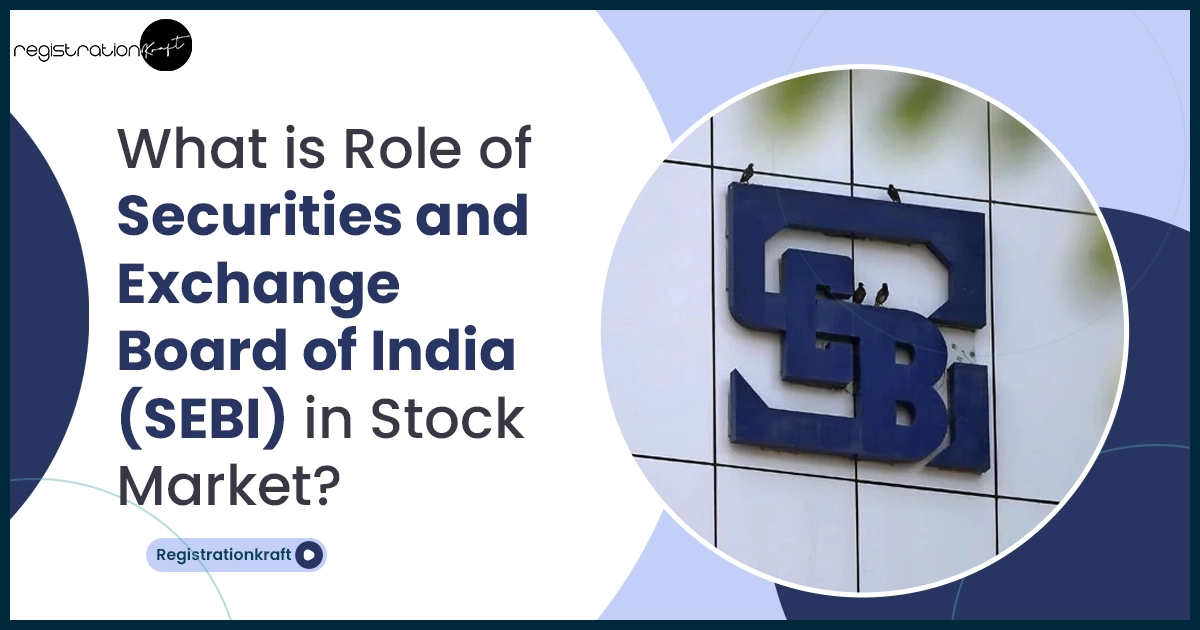What is Role of Securities and Exchange Board of India (SEBI) in Stock Market?

SEBI stands for Securities and Exchange Board of India. In the world of stock market and stock investment, the Securities and Exchange Board of India (SEBI) is the most commonly used term among all. You can understand it as a counterpart of the Securities and Exchange Commission (SEC) in the United States. One of the most prominent SEBI objectives is to safeguard the interest of stock investors while promoting the growth of the stock market. In addition, SEBI also looks after the controlling of the securities market. Let’s get to know more about SEBI in the following part of this insightful post.
What is SEBI?
Headquartered in Mumbai, the financial capital of India, SEBI is the top regulatory body in the area of the stock market. It was established on 12 April 1992 by the Government of India. The first and foremost objective behind the establishment of SEBI is to protect the interests of investors and promote the growth of the stock market by framing value-centric rules and guidelines. SEBI has its offices located in various cities within India including New Delhi, Kochi, Lucknow, Jaipur, Chennai, Kolkata, Ahmedabad, Shimla, Bengaluru, and Hyderabad.
SEBI possesses the power to inspect the account books of stock exchanges and review the books of market intermediaries like banks, corporations, and registered brokers. One major objective of SEBI is to make it safer for investors by implementing rules and regulations in the stock market.
What was the reason behind the establishment of SEBI?
SEBI was brought into action to negate the chances of fraud and increase transparency levels in all the functioning of the stock markets. There was a time between the years 1970 and 1990 when stock markets were prone to fraudulent activities like unreported private placements, insider trading, non-adherence, rules violation, price manipulation, delayed shares delivery, etc. This is when the Government of India decided to introduce SEBI to curb all these illegal activities in the stock market by strengthening the underlying rules & regulations while making the entire system more transparent and investor-centric.
Formation of SEBI
The Securities and Exchange Board of India was set up in its existing form in April 1992, after the passing of the Securities and Exchange Board of India Act in the parliament of India. It displaced the Controller of Capital Issues, which was managing the stock markets under the Capital Issues (Control) Act of 1947, which was introduced only months before the independence of India from Great Britain.
SEBI Structure
The existing structure of SEBI is inclusive of 9 members.
- A Chairman, chosen by the Union Government of India
- Two representatives belonging to the union finance ministry
- One representative from the Reserve Bank of India.
- The remaining five members are selected by the Union Government of India
SEBI has various departments and all the departments are managed by the head of the department. There are nearly twenty departments under SEBI.
Some of these departments are:
- Economic and policy analysis
- Corporation finance
- Human Resources
- Debt and hybrid securities
- Investment Management
- Enforcement
- Legal affairs
- Commodity derivatives market regulations
Crucial SEBI Rules & Guidelines
SEBI has laid out several rules and guidelines for investors and stakeholders of the stock market. Some of the most crucial SEBI rules and guidelines include:
- Mutual Fund regulations and SEBI
- SEBI Notifications
- Listing Criteria for Listed Companies
- Mutual Fund Regulations and SEBI Mutual Funds are looked after by SEBI, the Securities and Exchange Board of India. SEBI is obliged to manage elements like pension funds, mutual funds, provident funds, and numerous other financial organizations in India. It also draft and implement various rules for government-backed schemes such as PPF, National Pension System, etc.
- There are several rules and guidelines available for investors in the stock market. A few of them are defined below: 1. Investors should engage with unregistered companies that do not carry a public shareholding 2. Investors are not supposed trade in the secondary market without a valid PAN card, TIN Card, and Aadhaar card.
- Investors are not allowed to engagement with organizations listed on the grey market. All investors should have an active Demat account while trading in stocks5. The investor must be above 18 years of age and should not be a minor. Investors should complete the KYC procedure. The investors must have a minimum trading capital of Rs 2 lakhs.
Role of SEBI in The Stock Market
The Securities exchange board of India (SEBI) primarily serves as a watchdog for all the stakeholders active in the stock market. The purpose is to enable a safer system for the retail investors along with other participants of the securities market and guarantee easy and efficient functioning of the stock market.
SEBI’s character in the stock market is very crucial not just to retail investors but also other market mediators. The regulatory body ensures that the three most crucial financial market players are on the top priority.
- Securities issuers: These units get registered on the stock exchanges and raise money by the issuance of shares. The SEBI ensures that the initial public offering (IPO) and post-public offer are processed with utmost transparency.
- Investors: Investors hold the utmost value in any section of the stock market and they actively engage in the stock market. SEBI safeguards the interests of these investors by ensuring no scope for fraud or stock market manipulation.
- Financial sector mediators: These mediators sit between the share issuers and investors in the stock market with the purpose of making all the related financial transactions safe and level. SEBI looks after each & every activity of the stock market intermediaries.
The Conclusion
The role of the Securities and Exchange Board of India (SEBI) is extremely crucial as it is the prime regulatory body that handles every activity related to the stock market on all fronts. The presence of SEBI ensures that all stock market dealings are done in a highly transparent and efficient way and benefit all the associated parties.
Stay Connected with Registration Kraft for more related post
Categories: Finance
Tags: Exchange Board, SEBI, Stock market





